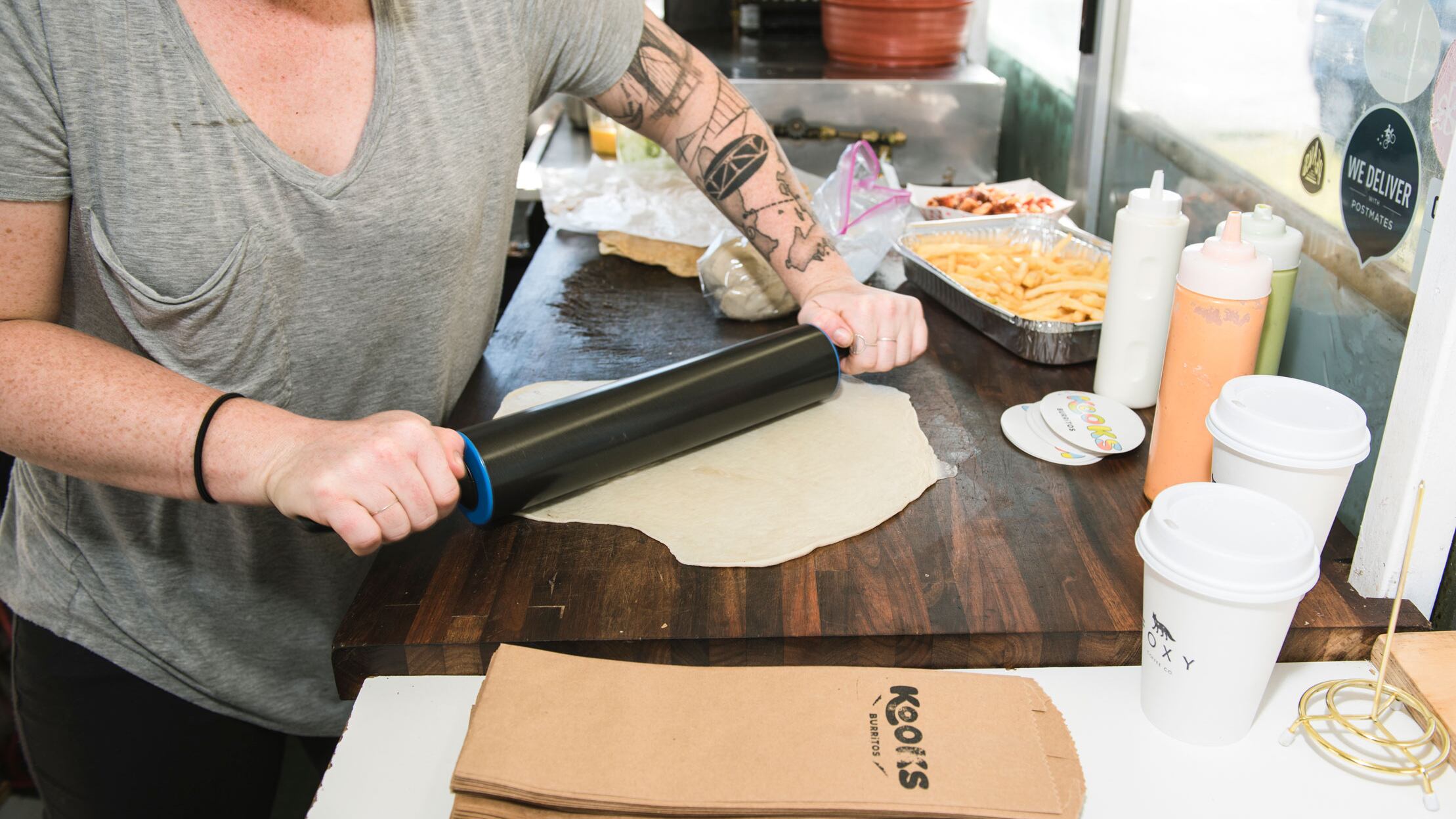What happened: WW reviewed a weekend breakfast burrito pop-up in Buckman called Kooks Burritos.
The two women who started Kooks Burritos, Liz Connelly and Kali Wilgus, described their inspiration for the tortillas, which were based on those served from lobster stalls in the coastal Mexican town of Porto Allegre. "They wouldn't tell us too much about technique," Connelly said, "but we were peeking into the windows of every kitchen, totally fascinated by how easy they made it look."
We posted the story to our Facebook page on May 17.
Then the internet exploded.
A loosely organized online campaign accused Connelly and Wilgus of "cultural appropriation" by stealing from the tortilla chefs in Porto Allegre. Within two hours, the women received death threats on their Instagram pages, then death threats on their personal cellphones. They closed Kooks before the following weekend.

It didn't stop there. Local activist Alex Felsinger and Broadspace co-founder Kristin Goodman created and circulated a list of white-owned businesses that should be boycotted for stealing culture, even though many of them were actually owned by people of color.
Then the conservative media picked up on this story and Kooks' closure, and a second wave of people from all over the country got pissed off at the first wave.
Soon, national and international news outlets from The Washington Post to the London Daily Mail picked up on this story.
Everyone was very angry.

Why it mattered: The luckless founders of Kooks had stumbled into a long-standing battle between progressive activists and their right-wing foils over cultural appropriation.
For years, tensions had simmered about racism in Portland's restaurant industry, particularly regarding white chefs profiting from the cuisines of non-white cultures. Kooks' founders were in the wrong place at the wrong time, and WW's positive review of their pop-up, ironically, didn't help.

"Why is it these girls, right now?" Anh Luu, owner of Vietnamese-Cajun restaurant Tapalaya, said in an interview with WW. "Lots of people of different races have been opening up restaurants that are not of their own race. I feel like if two white dudes had opened a burrito truck, saying, 'We spent a few months in Mexico speaking broken Spanish,' people would be like, 'Oh, cool, brah! That's awesome!'"
The Kooks controversy was one of the ugliest scuffles over appropriation seen in Portland or in the U.S. this year. But it was hardly the last. The same ingredients—hashtag activism, a heightened sensitivity to racial injustice, and the thrill of online righteousness that quickly shades into bullying—appeared again and again as America tried to deal with its collective political anger.
Wilgus and Connelly are no longer on social media and could not be reached for comment.

